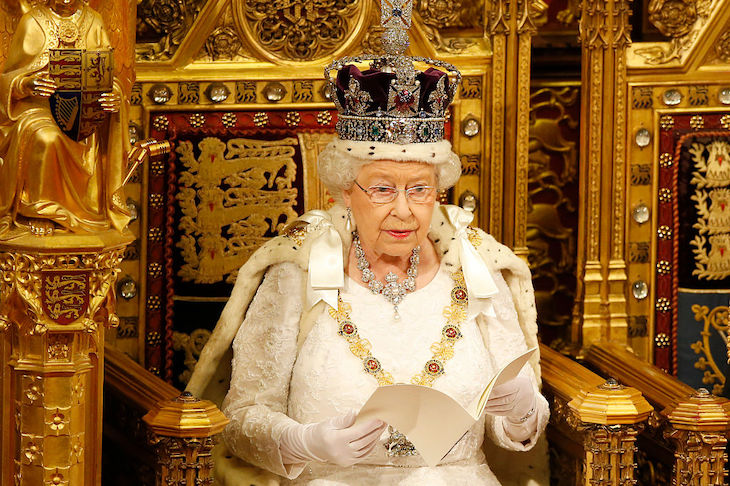Funny how language changes over time. Or rather, how we change language to advance our agenda.
Sometimes it’s a natural process, a long process – what works survives and what’s easy thrives. The word ‘smart’ originated as something to describe pain or a stinging sensation. The ‘sting’ associated with the word moved to an understanding of ‘quickness’ or ‘intensity’, and is now used today to describe intelligence and wit. ‘She’s the smart one on those benches’ we might utter, to spark fierce debate and disagreement in these politically tumultuous times.
‘Smug’ started out with surprisingly positive connotations, used to describe those who took care of their appearance, coming across tidy and well kept. No longer a rousing endorsement of someone’s character, it’s become an insult of fairy large proportion, levelled at the commentator on the news round-up you never agree with.
Even ‘fun’ – something totally absent in politics these days – has morphed into something with essentially the opposite meaning of its current use. Knowing it was originally understood as a verb ‘to cheat’ or ‘trick’, I’m sure many could find good use for it in their current commentary on the Brexit debate.
Words and meanings change. It happens in everyday life, and it happens on a much more extreme scale in political life.
The ‘detention centres’ along America’s southern border which hold unaccompanied migrant children were not a huge topic of debate during President Barack Obama’s tenure in the Oval Office. Almost overnight, these became ‘cages’ under President Trump, despite their terrible conditions remaining largely unchanged from the previous administration. ‘Executive Orders’ – which Obama gloated about when he put pen to paper – are now ‘autocracy’ under Trump.
Here in the UK, getting the rich to pay their ‘fair share’ of tax is dubbed a ‘dementia tax’ if it ends up in the wrong party’s manifesto. Dangerous, carbon-emitting activity is ‘humanitarian outreach’ if Harry and Meghan are the ones on the private jet.
Energy price caps proposed by Ed Miliband are… energy price caps implemented by Theresa May. Sometimes you don’t even need to change your language to re-write history and get away with it (political history anyway, the consequences of the policy itself will be unmasked in due time).
But perhaps one of the most egregious adaptions (egregious: another morpher), will be the new definition of ‘proroguing’ which has swept the UK and beyond in a 48 hour window.
Before our new, politically toxic definition of proroguing took hold, we would have understood the suspension of Parliament to be a frequent but mundane calendar staple, when the Queen’s Speech takes place.
Some rituals movements would happen in the Commons and get aired on TV. We’d comment on Corbyn’s facial expressions while they took place, the Queen would read out her government-approved script. The suspension of Government would be fleeting and activity would resume as normal.
This year, because it’s politically convenient, proroguing Parliament for the Queen’s Speech is ‘trashing our democracy’, ‘archaic’, and according to Wednesday’s protesters ‘a coup’.
Being able to utter such absurdities is a luxury only granted to those who have never known anything but a safe, strong and guarded democracy, in which their rights are upheld and their vote always counts.
Yet everyone has fed into the conjectured celebrations and outrage. Brexiteers toasting the suspension of Parliament to secure the UK’s exit from the EU have been just as misleading on the topic as the cries from Remainers of dictatorship and cancelling of democratic processes.
It’s a political storm in a tea-cup (as pointed out by many already, this year’s prorogation amounts to a grand total of three additional days Parliament won’t be sitting, tacked on to the party conference season recess). Prorogation happens frequently, and for good reason (this time included). There’s nothing interesting or new about it, except that we’ve decided to scandalise it.
The damage will not be to political processes, or even to the outcome of Brexit. There is still time for MPs who deride the result of 17.4 million votes to try to do something about it.
The damage will be to our already fractured, often impenetrable political discourse, which paints our political opponents as the worst-intentioned people, the most evil of sinners, the devil incarnate.
How timely, that during Scottish Conservative leader Ruth Davidson’s resignation remarks yesterday, she ended by calling for improved discussion and dialogue.
‘Improve’ – now meant ‘to better’ – stems from ‘to one’s profit’. Whose agenda is advancing, who is profiting, really, from the degrading and demoralising of our debate?







Comments